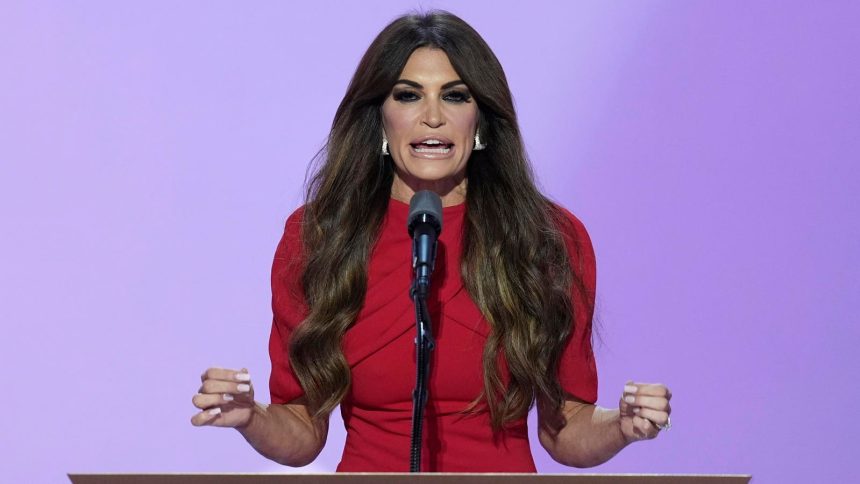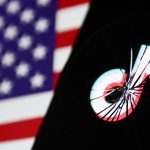Trump’s Second Term Administration: A Blend of Familiar Faces, Controversial Figures, and Unexpected Allies
Former President Donald Trump’s return to the White House has been marked by a wave of appointments, reflecting a blend of familiar faces from his first term, controversial figures who have sparked public debate, and some unexpected allies from across the political spectrum. These selections underscore Trump’s continued reliance on loyalists, his penchant for unconventional choices, and his intention to pursue an aggressive policy agenda. The appointments span a wide range of positions, from Cabinet secretaries to ambassadorships and key White House staff roles, each carrying significant implications for the direction of the country.
One of the most striking features of Trump’s appointments is the inclusion of individuals who have faced legal scrutiny or generated controversy. Kimberly Guilfoyle, Trump Jr.’s fiancée and a figure connected to the January 6th events, was nominated as ambassador to Greece. Tom Barrack, a former billionaire with extensive business dealings in the Middle East, was chosen as ambassador to Turkey. Charles Kushner, Trump’s pardoned father-in-law, was nominated as ambassador to France. These choices suggest a willingness to prioritize personal loyalty and political connections over traditional diplomatic experience or a squeaky-clean public image.
Another notable trend is Trump’s embrace of individuals with strong ideological leanings and a history of challenging established norms. Robert F. Kennedy Jr., a prominent vaccine skeptic, was tapped to lead the Department of Health and Human Services. Peter Navarro, a staunch advocate of protectionist trade policies who was convicted of contempt of Congress, was named a senior trade advisor. These selections signal a potential shift towards more unconventional approaches to policymaking, potentially prioritizing disruptive change over established scientific consensus or institutional norms.
The appointments also highlight Trump’s continued reliance on figures from his first term. Stephen Miller, a key architect of Trump’s hardline immigration policies, was appointed as a senior advisor and homeland security advisor. Dan Scavino returned to his role as deputy chief of staff. These appointments suggest a degree of continuity with the policies and priorities of Trump’s first administration, particularly in areas like immigration and border security.
Beyond these familiar faces, Trump’s appointments feature a mix of individuals with diverse backgrounds and experiences. Elon Musk and Vivek Ramaswamy were tapped to lead a newly created Department of Government Efficiency, tasked with streamlining the federal bureaucracy. Scott Bessent, a hedge fund executive with a history of pro-tariff views, was chosen as treasury secretary. These selections suggest an attempt to bring in outside perspectives and expertise, while also prioritizing individuals who align with Trump’s economic and political worldview.
The breadth and depth of Trump’s appointments offer a compelling glimpse into his vision for a second term. The selections range from seasoned political operatives to business leaders, from controversial figures to unexpected allies. While the long-term implications of these appointments remain to be seen, they underscore Trump’s intent to pursue a bold and potentially disruptive agenda.
Ambassadorships and Foreign Policy: A Mix of Loyalty, Experience, and Unconventional Choices
Trump’s ambassadorial appointments reflect a mix of personal loyalty, relevant experience, and some highly unconventional choices. Kimberly Guilfoyle’s nomination to Greece and Tom Barrack’s to Turkey raised eyebrows given their close ties to Trump and their lack of traditional diplomatic experience. Similarly, the nomination of Charles Kushner to France, despite his past legal troubles, underscores the prioritization of personal connections. Other appointments, such as David Perdue to China and Mike Huckabee to Israel, brought in individuals with some prior political or governmental experience, albeit with varying degrees of relevance to their assigned posts. These choices suggest a foreign policy approach that may prioritize personal relationships and political considerations over traditional diplomatic norms and expertise.
Economic Policy: A Focus on Tariffs, Deregulation, and Unconventional Leadership
Trump’s economic team appointments signal a continued focus on protectionist trade policies, deregulation, and a willingness to embrace unconventional leadership. Scott Bessent, a known advocate of tariffs, as treasury secretary, suggests a potential return to trade disputes and a more aggressive stance towards international trade partners. The appointment of Kevin Hassett to the National Economic Council, despite his expressed reservations about some of Trump’s economic proposals, adds a layer of complexity to the picture. The creation of a new Department of Government Efficiency, led by Elon Musk and Vivek Ramaswamy, hints at a focus on streamlining bureaucracy and cutting regulations, potentially impacting various sectors of the economy.
Domestic Policy: A Blend of Hardline Stances, Unconventional Views, and Familiar Faces
Trump’s domestic policy appointments reflect a blend of hardline stances, unconventional views, and the return of familiar faces from his first term. The nomination of Robert F. Kennedy Jr. to HHS, with his controversial views on vaccines and public health, suggests a potential shift towards a more unorthodox approach to health policy. Stephen Miller’s return as a senior advisor signals a continued focus on hardline immigration policies. Other appointments, such as Linda McMahon to Education and Russell Vought to OMB, bring back familiar figures from the first Trump administration, suggesting a degree of continuity in domestic policy priorities.
Key White House Staff: A Mix of Loyalists, Campaign Operatives, and Controversial Figures
Trump’s White House staff appointments reflect a heavy reliance on loyalists, campaign operatives, and some controversial figures. Susie Wiles as chief of staff, Karoline Leavitt as press secretary, and Steven Cheung as communications director all played key roles in Trump’s 2024 campaign, suggesting a tight-knit inner circle focused on maintaining a consistent message and projecting a strong image. The return of Dan Scavino as deputy chief of staff further reinforces this sense of continuity with the first Trump administration. However, the inclusion of figures like Sebastian Gorka, who has been associated with far-right groups, raises concerns about the potential influence of extremist ideologies within the White House.
Justice Department: A Focus on Loyalty, Retribution, and Potential Conflicts of Interest
Trump’s Justice Department appointments raise concerns about potential conflicts of interest and a focus on retribution against perceived enemies. The nomination of Pam Bondi as attorney general, given her close ties to Trump and her role in his first impeachment defense, suggests a potential politicization of the Justice Department. The appointment of Todd Blanche, Trump’s hush money trial lawyer, as deputy attorney general raises further questions about potential conflicts of interest. These choices indicate a possible shift towards a more partisan approach to law enforcement, potentially prioritizing political considerations over the impartial administration of justice.
Overall Assessment: A Bold, Disruptive, and Potentially Controversial Administration
Trump’s second term appointments paint a picture of an administration poised to be bold, disruptive, and potentially highly controversial. The blend of loyalists, controversial figures, and unexpected allies suggests a governing style that prioritizes personal connections, ideological alignment, and a willingness to challenge established norms. While some appointments bring in individuals with relevant experience, others raise concerns about qualifications, conflicts of interest, and potential extremism. The long-term consequences of these appointments for the direction of the country remain to be seen, but they signal a potential for significant shifts in policy and a turbulent political landscape.



